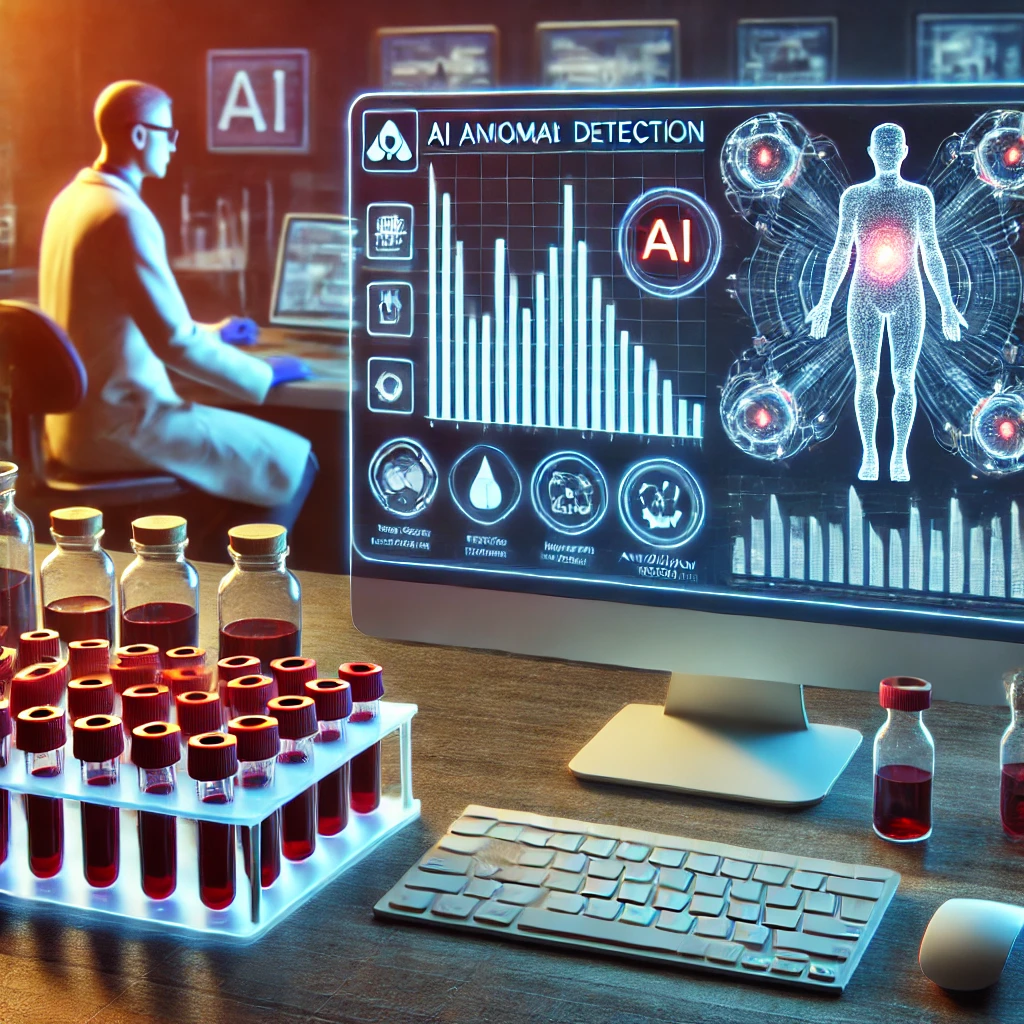Revolutionizing Medical Diagnostics: How AI Enhances Early Disease Detection Through Blood Tests
Artificial intelligence (AI) is transforming the medical field by enhancing the early detection and diagnosis of various diseases through the analysis of blood tests. By identifying subtle patterns and anomalies in blood samples, AI algorithms can provide early warnings of conditions such as ovarian cancer, pneumonia, and other serious illnesses.
Early Detection of Ovarian Cancer
Ovarian cancer is often diagnosed at advanced stages due to the lack of early symptoms. Researchers at Memorial Sloan Kettering Cancer Center in New York have developed a testing technology utilizing carbon nanotubes—extremely small tubes that emit fluorescent light in response to substances in the blood. These nanotubes can detect various molecules, including those associated with ovarian cancer.
However, interpreting the complex data from these nanotubes is challenging for humans. To address this, AI algorithms are employed to analyze the data, identifying patterns that indicate the presence of cancer. This approach has demonstrated higher accuracy than current cancer biomarkers, offering the potential for earlier and more reliable detection of ovarian cancer.
Accelerating Pneumonia Diagnosis
Pneumonia, a potentially life-threatening infection, is caused by over 600 different pathogens. Traditionally, diagnosing the specific cause involves multiple tests over several days, delaying treatment. Karius, a California-based company, has developed an AI-powered blood test that can identify the exact pathogen responsible for pneumonia within 24 hours.
By comparing patient samples to a vast database of microbial DNA, the AI system can quickly and accurately pinpoint the causative organism, enabling prompt and targeted treatment. This advancement significantly reduces the time required for diagnosis and improves patient outcomes.
Advancements in Cancer Detection
Beyond ovarian cancer, AI is being applied to detect other cancers at earlier stages. A study led by scientists at Weill Cornell Medicine and Memorial Sloan Kettering Cancer Center introduced an AI method called MRD-EDGE. This method significantly improves the detection of tumor DNA in blood samples.
MRD-EDGE has shown high effectiveness in identifying recurrences of lung, breast, and colorectal cancers earlier than conventional methods, potentially leading to better patient outcomes. This innovation highlights the growing role of AI in precision medicine and personalized treatment plans.
Challenges and Future Directions
Despite these promising developments, several challenges remain. The rarity of certain cancers, such as ovarian cancer, limits the amount of data available for training AI algorithms. Additionally, the complexity of biological data requires sophisticated models to accurately interpret subtle patterns.
Researchers are addressing these challenges by developing more advanced AI models and collaborating across institutions to share data and resources. The goal is to create AI systems that can analyze complex biological data to detect diseases at their earliest and most treatable stages.
AI is transforming the landscape of medical diagnostics by enhancing the early detection of diseases through the analysis of blood tests. As research progresses and AI models become more refined, the potential for AI to improve patient outcomes through early and accurate diagnosis continues to grow.




